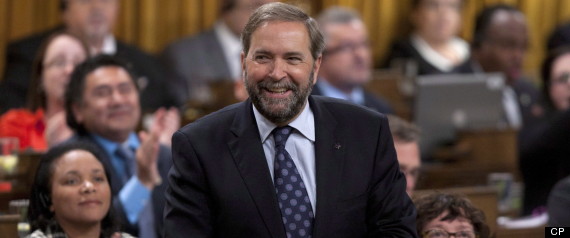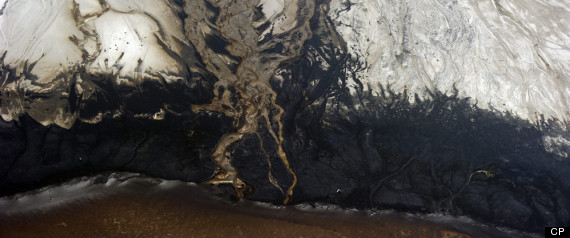 What does John Brennan consider to be a “legal framework” within which the American government can decide whom to torture or to assassinate? Brennan is President Obama’s nominee for Director of Central Intelligence; the last time his name came up for the job, after Obama won in 2008, he didn’t get it because he seemed so close to the torture program perpetrated while he was a senior official at the C.I.A. If he has greater distance now, it is only because more time has passed, not because there has been any true accounting; if anything, we have slid into an odd state of complacency about the torture in the Bush years, watching it in movies and wondering whether it worked, rather than asking who might be culpable. Brennan, instead of answering hard questions about those years, became the President’s counterterrorism adviser. That job includes many duties. One of them is crafting the President’s “kill list” (which I’ve written about in the past) and then taking it to him for final approval.
What does John Brennan consider to be a “legal framework” within which the American government can decide whom to torture or to assassinate? Brennan is President Obama’s nominee for Director of Central Intelligence; the last time his name came up for the job, after Obama won in 2008, he didn’t get it because he seemed so close to the torture program perpetrated while he was a senior official at the C.I.A. If he has greater distance now, it is only because more time has passed, not because there has been any true accounting; if anything, we have slid into an odd state of complacency about the torture in the Bush years, watching it in movies and wondering whether it worked, rather than asking who might be culpable. Brennan, instead of answering hard questions about those years, became the President’s counterterrorism adviser. That job includes many duties. One of them is crafting the President’s “kill list” (which I’ve written about in the past) and then taking it to him for final approval.Democracy Gone Astray
Democracy, being a human construct, needs to be thought of as directionality rather than an object. As such, to understand it requires not so much a description of existing structures and/or other related phenomena but a declaration of intentionality.
This blog aims at creating labeled lists of published infringements of such intentionality, of points in time where democracy strays from its intended directionality. In addition to outright infringements, this blog also collects important contemporary information and/or discussions that impact our socio-political landscape.
All the posts here were published in the electronic media – main-stream as well as fringe, and maintain links to the original texts.
[NOTE: Due to changes I haven't caught on time in the blogging software, all of the 'Original Article' links were nullified between September 11, 2012 and December 11, 2012. My apologies.]
Tuesday, January 08, 2013
John Brennan’s Kill List
 What does John Brennan consider to be a “legal framework” within which the American government can decide whom to torture or to assassinate? Brennan is President Obama’s nominee for Director of Central Intelligence; the last time his name came up for the job, after Obama won in 2008, he didn’t get it because he seemed so close to the torture program perpetrated while he was a senior official at the C.I.A. If he has greater distance now, it is only because more time has passed, not because there has been any true accounting; if anything, we have slid into an odd state of complacency about the torture in the Bush years, watching it in movies and wondering whether it worked, rather than asking who might be culpable. Brennan, instead of answering hard questions about those years, became the President’s counterterrorism adviser. That job includes many duties. One of them is crafting the President’s “kill list” (which I’ve written about in the past) and then taking it to him for final approval.
What does John Brennan consider to be a “legal framework” within which the American government can decide whom to torture or to assassinate? Brennan is President Obama’s nominee for Director of Central Intelligence; the last time his name came up for the job, after Obama won in 2008, he didn’t get it because he seemed so close to the torture program perpetrated while he was a senior official at the C.I.A. If he has greater distance now, it is only because more time has passed, not because there has been any true accounting; if anything, we have slid into an odd state of complacency about the torture in the Bush years, watching it in movies and wondering whether it worked, rather than asking who might be culpable. Brennan, instead of answering hard questions about those years, became the President’s counterterrorism adviser. That job includes many duties. One of them is crafting the President’s “kill list” (which I’ve written about in the past) and then taking it to him for final approval.U.S. Legal Officials Split Over How to Prosecute Terrorism Detainees
WASHINGTON — The Obama administration legal team is divided over whether to drop two terrorism cases originally prosecuted in a military commission at Guantánamo Bay, Cuba, a decision that could have far-reaching consequences by significantly reducing the number of other prisoners who can receive tribunal trials.
9 Facts That Prove Joe Stiglitz Is Right About Climate Change Hurting The Economy
 Economist Joseph Stiglitz recently announced that he believes climate change is the most important issue
facing the U.S. economy today. Certainly, climate change is serious
global issue, but how exactly will it affect the U.S. economy? What
follows are some statistics on climate change's impact on the U.S.
economy, gathered primarily from non-governmental organizations that
deal with climate-change issues.
Economist Joseph Stiglitz recently announced that he believes climate change is the most important issue
facing the U.S. economy today. Certainly, climate change is serious
global issue, but how exactly will it affect the U.S. economy? What
follows are some statistics on climate change's impact on the U.S.
economy, gathered primarily from non-governmental organizations that
deal with climate-change issues.U.S. Drone Strikes Increase With Start Of New Year
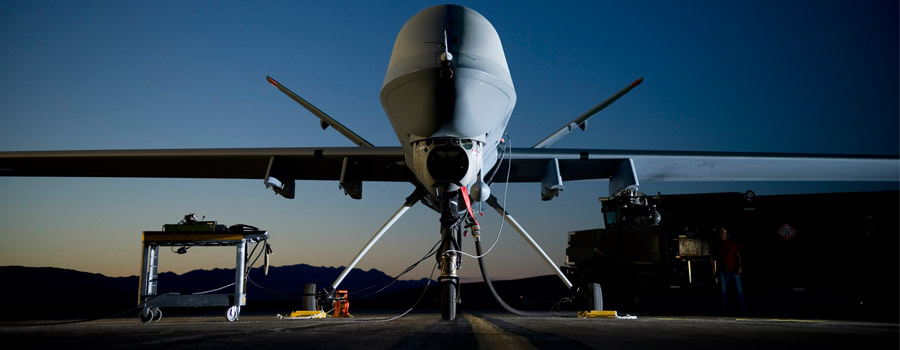 At least eight people, including an unidentified tactical trainer for al-Qaeda, were killed in a series of American drone strikes in Pakistan early on Tuesday, intelligence sources told Reuters.
At least eight people, including an unidentified tactical trainer for al-Qaeda, were killed in a series of American drone strikes in Pakistan early on Tuesday, intelligence sources told Reuters.Wired reports that including Tuesday's strikes, the number of drone strikes in Pakistan since the new year stands at six. The count has decreased over the past two years, but spiked just after January 1.
EI Changes Too Complex, Onerous, Critics Claim
 People on employment insurance now have less time to find a new job as the federal government reforms its rules on benefits payments.
People on employment insurance now have less time to find a new job as the federal government reforms its rules on benefits payments.But critics say the new system will unfairly affect seasonal and contract workers — those who work in industries like forestry, landscaping and tourism — accustomed to collecting EI in the off-season.
Canada Haiti Aid: Give Haitian Government More Say Over Spending, Haiti's PM Says
 MONTREAL - Haiti's prime minister wants Ottawa to give his government more say in how Canadian aid money is spent in his country as it struggles to rebuild after a devastating earthquake three years ago.
MONTREAL - Haiti's prime minister wants Ottawa to give his government more say in how Canadian aid money is spent in his country as it struggles to rebuild after a devastating earthquake three years ago.Laurent Lamothe spoke to The Canadian Press a few days after Canada's international co-operation minister indicated Ottawa had halted funding for new development projects in Haiti.
Harper, Thomas Boni Yayi Meeting: PM Rules Out Canadian Military Mission In Mali
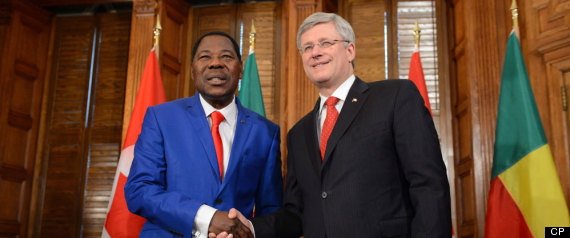 OTTAWA - Prime Minister Stephen Harper ruled out sending Canadian troops to fight Islamist insurgents in Mali, essentially rejecting an impassioned request Tuesday by the head of the African Union for NATO to join the battle.
OTTAWA - Prime Minister Stephen Harper ruled out sending Canadian troops to fight Islamist insurgents in Mali, essentially rejecting an impassioned request Tuesday by the head of the African Union for NATO to join the battle.Harper said Canada will not join the fight alongside African Union forces in Mali against an al-Qaida-linked group that controls the northern part of the country.
NDP Poll Finds Canada Is Ready For A Mulcair Government
While Stephen Harper's Conservatives still maintain a lead in national voting intentions, more Canadians say they agree with Thomas Mulcair's values than those of the prime minister.
However, Canadians are split down the middle on whether the New Democrats are ready to govern the country.
These are the findings of an Ipsos-Reid year-end survey which found Mulcair and Harper put up similar numbers.
However, Canadians are split down the middle on whether the New Democrats are ready to govern the country.
These are the findings of an Ipsos-Reid year-end survey which found Mulcair and Harper put up similar numbers.
The Case for A Canadian Forces Gripen Fighter Aircraft Part 2
Editor’s note: Defence Watch reader Kyle Meema has researched
alternatives to the F-35. In a two-part series (part one ran on Monday)
he argues that Canada should purchase the Gripen fighter aircraft plus
other aviation assets.
By Kyle Meema
Defence Watch Guest Writer
Factor 5: Stealth
The F-35A’s claim to be a stealth aircraft is illusionary. No aircraft is invisible to radar and the F-35A is no exception. For example, the F-117 Nighthawk was supposed to be a stealth aircraft and yet one was shot down over Serbia using Cold War era radar guided surface-to-air missiles.[1] Boeing’s new F/A-18G “Growler” was able to shoot down the super-advanced F-22A Raptor stealth fighter during an exercise.[2] The F-22A has been touted as the greatest air superiority fighter in the world, even stealthier than the F-35A,[3] and yet it was downed by a 4.5th generation fighter due to the advances in detection that counter whatever stealth advantage there may have been. During Red Flag in Alaska, the Eurofighter performed better than the F-22A in a dog fight scenario, scoring several F-22A kills.[4] Within a range of 50km, the Eurofighter’s IRST (Infra-red Search and Track) system was easily able to spot and track the allegedly stealthy F-22A.[5] The F-35A is not a stealth aircraft. There is no such thing as a stealth aircraft.[6] Fighters that are allegedly stealthy are still detectable and relying on the myth of stealth puts Canadian and coalition forces in the air and on the ground in real danger. Given that the F-35A has scarified so much for the sake of a dubious stealth advantage, it should not be purchased on the basis that it is stealth and will remain undetectable in battle.
The Eurofighter and Gripen are not stealth aircraft and don’t pretend to have such capabilities. Though they have a reduced radar cross-section and incorporate methods of reducing their profile, they have focused on other areas, such as speed, armament, sensor technology, and, in the case of the Gripen, value for money.
In additional to its questionable usefulness against current detection methods, stealth has other major problems. The F-35A’s stealth has been built into plane and is thus locked in for the life of the airframe itself. No improvements or upgrades can increase the stealth capability. As the F-35A is meant to serve Canada for up to forty years, what little stealth advantage it may have cannot be upgraded to keep pace with the advances in detection technology. Advances in radar detection are primarily limited to software improvements. As this software becomes more and more sophisticated, the F-35A becomes more and more vulnerable. It is further crippled by the fact that it cannot be upgraded to counter the improved radar software. Canada’s $45.8 billion plane could be rendered obsolete by something as little as a software update before it even enters service. In which case, the F-35A’s advanced sensors would be very aware of an adversary that is about to shoot it down.
Factor 6: Non-Combat Advantages
While the Gripen and Eurofighter are about equal in base specs and both outperform the F-35A, the Gripen has a few unique advantages. For example, the Gripen has the advantage in terms of operating in cold winter weather and remote locations. Its design allows it to stop on an 800 metre snow-covered runway[7]. This could be invaluable when operating over the far North as it could land at municipal airports even in poor conditions. Neither the Eurofighter nor the F-35A were designed for cold weather operation in a manner comparable to the Gripen. From an Arctic sovereignty perspective, this cold weather operational capability would be invaluable.
Saab also provides the source code for the Gripen’s software[8], allowing for quick and easy software upgrades without the need complicated and time consuming work to make it compatible with the hardware. The European Consortium does not provide the Eurofighter’s source code to buyers. Lockheed-Martin also does not provide the source code for the F-35A to buyers. The provision of this source code was a major factor that persuaded India to buy the Rafale over the Eurofighter.[9]
Factor 6: Involvement of Canadian Business
The NG Gripen also has an advantage over the Eurofighter in terms of how procurement could involve Canadian businesses. Saab has offered to allow Bombardier to build the jets,[10] which would provide jobs and boost the Canadian economy. The European Consortium has yet to make such an offer to Canada. However, the Eurofighter does have potential to involve Canadian industry, as its engines are made by Rolls-Royce, which has facilities in Canada. The advantage of greater involvement of Canadian businesses gives the Gripen a clear advantage over the Eurofighter. The F-35A does involve some Canadian businesses, but a made-in-Canada Gripen would match or best the F-35A’s Canadian contribution.
Factor 7: What To Do With The Money Saved By Buying the NG Gripen
The total cradle-to-grave cost of a fleet of 150 NG Gripens for 40+ years is approximately $22 billion. At 48% of the cost of a fleet of 65 F-35As, billions of dollars are freed up in the defence budget that could be put towards enhancing the Gripen’s effectiveness and bolstering Canada’s air power in general.
As mentioned earlier, money saved by procuring the Gripen could go towards equipping the jets with the best weapons and equipment available. In particular, acquiring the MBDA Meteor air-to-air missile should be a high priority. The Meteor is the most advanced air-to-air missile and has Beyond Visual Range (BVR) capabilities unmatched in the Western world. An F-35A procurement would not allow for such advanced high-quality missiles to be purchased, due to budget constraints, or used, due to the F-35A’s compatibility issues.
The F-35A’s internal weapons bay is suited for short-range missiles and bombs. However, use of such weapons necessitates the F-35A flying deep into enemy territory, making it a target for enemy anti-air defences. Such tactics put the ludicrously expensive fighter and, more importantly, its pilot in great danger. This danger is exacerbated by the lack of a significant stealth advantage, slow speeds, poor manoeuvrability, and severely reduced weapons carrying capacity and compatibility. Surely, it makes far more sense to keep Canadian pilots and planes out of harm’s way whenever possible by taking out defended priority targets from a safe distance. The Gripen can do this by deploying Air Launched Cruise Missiles (ALCMs) from as far as 500km away from the target.[11] Even though ALCMs are expensive, they are a much more cost effective solution in comparison to the F-35A. For example, Spain acquired 43 Taurus KEPD 350 ALCMs for approximately $80 million[12] which have completed successful testing.[13] This stock of Taurus ACLMs cost significantly less than the current initial procurement cost of a single F-35A.
Funds saved could also be put towards procuring UAVs and other aircraft for non-combat aerial missions. For example, Northrop Grumman has proposed a variant of its RQ-4 Global Hawk UAV, known as the Polar Hawk) which would serve as a High Altitude Long Endurance surveillance aircraft.[14] This would be ideal for monitoring large areas of Canada’s North for long periods of time. Given how important Arctic sovereignty is today and how it is only going to become more and more important as the Arctic opens up[15] such UAV’s would be an invaluable asset.
Canada’s CP-140 Aurora Maritime patrol aircraft are in need of replacement. The most likely candidate is the Boeing P-8 Poseidon patrol aircraft.[16] However, the P-8 is extremely expensive at $176 million per plane.[17] While some funds saved by a Gripen procurement should be put towards purchasing the P-8 Poseidon, Canada should seriously consider reducing the number of manned patrol aircraft in favour of UAVs. Northrop Grumman has the MQ-4C Triton UAV, which is another variant of the Global Hawk geared for maritime patrol,[18] which should be seriously considered. At $35 million per unit[19] Canada could purchase 7 Tritons for every 2 P-8s. In terms of effectiveness, the Triton could allow for single patrol missions covering 4.3 million kilometres.[20] While complete reliance on UAVs is not advisable, it would make a great deal of sense to purchase fewer manned aircraft, put funds saved towards UAVs, and operate a mixed fleet of manned and unmanned aircraft. This would provide increased patrol capability at a greatly reduced cost in comparison to relying entirely on a larger fleet of P-8s. Bombardier has also proposed a variant of its R1 Sentinel,[21] which, being Canadian designed and built, should be seriously considered due to the involvement of Canadian business.
Conclusion: The NG Gripen is the Right Fighter For Canada
The NG Gripen is the right fighter for Canada. It is based on a proven design and offers far more reliability and performance for a very reasonable price. The F-35A is vulnerable, underperforming, potentially obsolete before it is even completed, and far too expensive for what it delivers. It is too expensive to buy, too expensive to fly, and poorly suited to meet Canada’s needs. It should not be the first choice for a country like Canada. The Eurofighter performs exceptionally well, but is too expensive considering that the existing Gripen C/D offers nearly equal performance for half the price, and the NG Gripen will offer further improvements. The Gripen currently has greater potential for involvement by Canadian business, which would be a badly needed boost to the Canadian economy. Canada could purchase over twice as many Gripens than F-35As for the same $9 billion initial procurement and the money saved due to the Gripen’s vastly reduced operational cost can be spent equipping the fleet with the best weapons and equipment with funds left order to address other needs, such as Maritime patrol and Arctic sovereignty. Considering all these factors, the NG Gripen is the soundest choice to replace Canada’s aging CF-18s. There is no such thing as a perfect fighter, but when cost and capability are taken into account, the NG Gripen can serve Canada better than any other fighter jet available.
About the Author:
Kyle Meema teaches business and law. In 2014, he expects to obtain his Master’s in Air and Space Law from Leiden University in the Netherlands.
Footnotes:
[1] ://www.airspacemag.com/military-aviation/shot-down.html
Original Article
Source: ottawa citizen
Author: David Pugliese
By Kyle Meema
Defence Watch Guest Writer
Factor 5: Stealth
The F-35A’s claim to be a stealth aircraft is illusionary. No aircraft is invisible to radar and the F-35A is no exception. For example, the F-117 Nighthawk was supposed to be a stealth aircraft and yet one was shot down over Serbia using Cold War era radar guided surface-to-air missiles.[1] Boeing’s new F/A-18G “Growler” was able to shoot down the super-advanced F-22A Raptor stealth fighter during an exercise.[2] The F-22A has been touted as the greatest air superiority fighter in the world, even stealthier than the F-35A,[3] and yet it was downed by a 4.5th generation fighter due to the advances in detection that counter whatever stealth advantage there may have been. During Red Flag in Alaska, the Eurofighter performed better than the F-22A in a dog fight scenario, scoring several F-22A kills.[4] Within a range of 50km, the Eurofighter’s IRST (Infra-red Search and Track) system was easily able to spot and track the allegedly stealthy F-22A.[5] The F-35A is not a stealth aircraft. There is no such thing as a stealth aircraft.[6] Fighters that are allegedly stealthy are still detectable and relying on the myth of stealth puts Canadian and coalition forces in the air and on the ground in real danger. Given that the F-35A has scarified so much for the sake of a dubious stealth advantage, it should not be purchased on the basis that it is stealth and will remain undetectable in battle.
The Eurofighter and Gripen are not stealth aircraft and don’t pretend to have such capabilities. Though they have a reduced radar cross-section and incorporate methods of reducing their profile, they have focused on other areas, such as speed, armament, sensor technology, and, in the case of the Gripen, value for money.
In additional to its questionable usefulness against current detection methods, stealth has other major problems. The F-35A’s stealth has been built into plane and is thus locked in for the life of the airframe itself. No improvements or upgrades can increase the stealth capability. As the F-35A is meant to serve Canada for up to forty years, what little stealth advantage it may have cannot be upgraded to keep pace with the advances in detection technology. Advances in radar detection are primarily limited to software improvements. As this software becomes more and more sophisticated, the F-35A becomes more and more vulnerable. It is further crippled by the fact that it cannot be upgraded to counter the improved radar software. Canada’s $45.8 billion plane could be rendered obsolete by something as little as a software update before it even enters service. In which case, the F-35A’s advanced sensors would be very aware of an adversary that is about to shoot it down.
Factor 6: Non-Combat Advantages
While the Gripen and Eurofighter are about equal in base specs and both outperform the F-35A, the Gripen has a few unique advantages. For example, the Gripen has the advantage in terms of operating in cold winter weather and remote locations. Its design allows it to stop on an 800 metre snow-covered runway[7]. This could be invaluable when operating over the far North as it could land at municipal airports even in poor conditions. Neither the Eurofighter nor the F-35A were designed for cold weather operation in a manner comparable to the Gripen. From an Arctic sovereignty perspective, this cold weather operational capability would be invaluable.
Saab also provides the source code for the Gripen’s software[8], allowing for quick and easy software upgrades without the need complicated and time consuming work to make it compatible with the hardware. The European Consortium does not provide the Eurofighter’s source code to buyers. Lockheed-Martin also does not provide the source code for the F-35A to buyers. The provision of this source code was a major factor that persuaded India to buy the Rafale over the Eurofighter.[9]
Factor 6: Involvement of Canadian Business
The NG Gripen also has an advantage over the Eurofighter in terms of how procurement could involve Canadian businesses. Saab has offered to allow Bombardier to build the jets,[10] which would provide jobs and boost the Canadian economy. The European Consortium has yet to make such an offer to Canada. However, the Eurofighter does have potential to involve Canadian industry, as its engines are made by Rolls-Royce, which has facilities in Canada. The advantage of greater involvement of Canadian businesses gives the Gripen a clear advantage over the Eurofighter. The F-35A does involve some Canadian businesses, but a made-in-Canada Gripen would match or best the F-35A’s Canadian contribution.
Factor 7: What To Do With The Money Saved By Buying the NG Gripen
The total cradle-to-grave cost of a fleet of 150 NG Gripens for 40+ years is approximately $22 billion. At 48% of the cost of a fleet of 65 F-35As, billions of dollars are freed up in the defence budget that could be put towards enhancing the Gripen’s effectiveness and bolstering Canada’s air power in general.
As mentioned earlier, money saved by procuring the Gripen could go towards equipping the jets with the best weapons and equipment available. In particular, acquiring the MBDA Meteor air-to-air missile should be a high priority. The Meteor is the most advanced air-to-air missile and has Beyond Visual Range (BVR) capabilities unmatched in the Western world. An F-35A procurement would not allow for such advanced high-quality missiles to be purchased, due to budget constraints, or used, due to the F-35A’s compatibility issues.
The F-35A’s internal weapons bay is suited for short-range missiles and bombs. However, use of such weapons necessitates the F-35A flying deep into enemy territory, making it a target for enemy anti-air defences. Such tactics put the ludicrously expensive fighter and, more importantly, its pilot in great danger. This danger is exacerbated by the lack of a significant stealth advantage, slow speeds, poor manoeuvrability, and severely reduced weapons carrying capacity and compatibility. Surely, it makes far more sense to keep Canadian pilots and planes out of harm’s way whenever possible by taking out defended priority targets from a safe distance. The Gripen can do this by deploying Air Launched Cruise Missiles (ALCMs) from as far as 500km away from the target.[11] Even though ALCMs are expensive, they are a much more cost effective solution in comparison to the F-35A. For example, Spain acquired 43 Taurus KEPD 350 ALCMs for approximately $80 million[12] which have completed successful testing.[13] This stock of Taurus ACLMs cost significantly less than the current initial procurement cost of a single F-35A.
Funds saved could also be put towards procuring UAVs and other aircraft for non-combat aerial missions. For example, Northrop Grumman has proposed a variant of its RQ-4 Global Hawk UAV, known as the Polar Hawk) which would serve as a High Altitude Long Endurance surveillance aircraft.[14] This would be ideal for monitoring large areas of Canada’s North for long periods of time. Given how important Arctic sovereignty is today and how it is only going to become more and more important as the Arctic opens up[15] such UAV’s would be an invaluable asset.
Canada’s CP-140 Aurora Maritime patrol aircraft are in need of replacement. The most likely candidate is the Boeing P-8 Poseidon patrol aircraft.[16] However, the P-8 is extremely expensive at $176 million per plane.[17] While some funds saved by a Gripen procurement should be put towards purchasing the P-8 Poseidon, Canada should seriously consider reducing the number of manned patrol aircraft in favour of UAVs. Northrop Grumman has the MQ-4C Triton UAV, which is another variant of the Global Hawk geared for maritime patrol,[18] which should be seriously considered. At $35 million per unit[19] Canada could purchase 7 Tritons for every 2 P-8s. In terms of effectiveness, the Triton could allow for single patrol missions covering 4.3 million kilometres.[20] While complete reliance on UAVs is not advisable, it would make a great deal of sense to purchase fewer manned aircraft, put funds saved towards UAVs, and operate a mixed fleet of manned and unmanned aircraft. This would provide increased patrol capability at a greatly reduced cost in comparison to relying entirely on a larger fleet of P-8s. Bombardier has also proposed a variant of its R1 Sentinel,[21] which, being Canadian designed and built, should be seriously considered due to the involvement of Canadian business.
Conclusion: The NG Gripen is the Right Fighter For Canada
The NG Gripen is the right fighter for Canada. It is based on a proven design and offers far more reliability and performance for a very reasonable price. The F-35A is vulnerable, underperforming, potentially obsolete before it is even completed, and far too expensive for what it delivers. It is too expensive to buy, too expensive to fly, and poorly suited to meet Canada’s needs. It should not be the first choice for a country like Canada. The Eurofighter performs exceptionally well, but is too expensive considering that the existing Gripen C/D offers nearly equal performance for half the price, and the NG Gripen will offer further improvements. The Gripen currently has greater potential for involvement by Canadian business, which would be a badly needed boost to the Canadian economy. Canada could purchase over twice as many Gripens than F-35As for the same $9 billion initial procurement and the money saved due to the Gripen’s vastly reduced operational cost can be spent equipping the fleet with the best weapons and equipment with funds left order to address other needs, such as Maritime patrol and Arctic sovereignty. Considering all these factors, the NG Gripen is the soundest choice to replace Canada’s aging CF-18s. There is no such thing as a perfect fighter, but when cost and capability are taken into account, the NG Gripen can serve Canada better than any other fighter jet available.
About the Author:
Kyle Meema teaches business and law. In 2014, he expects to obtain his Master’s in Air and Space Law from Leiden University in the Netherlands.
Footnotes:
[1] ://www.airspacemag.com/military-aviation/shot-down.html
[7] Williams, Mel, ed. Superfighters: The Next Generation of Combat Aircraft. London: AIRtime Publishing Inc., 2002. ISBN 1-880588-53-6. (page 82)
[8] Williams, Mel, ed. Superfighters: The Next Generation of Combat Aircraft. London: AIRtime Publishing Inc., 2002. ISBN 1-880588-53-6. (page 82)
[11] Depending on which particular ALCM is used
Source: ottawa citizen
Author: David Pugliese
Alberta slaughterhouse reprimanded six times before E. coli scare, reports reveal
OTTAWA—The federal food safety watchdog reprimanded an XL Foods Inc. slaughterhouse on six separate occasions last year before discovering the E. coli contamination that prompted the biggest recall of meat in Canadian history.
The Star obtained six “Corrective Action Requests”— the reports federal food inspectors file when they notice something amiss — the Canadian Food Inspection Agency (CFIA) issued to the XL Foods plant in Brooks, Alta., last year.
The Star obtained six “Corrective Action Requests”— the reports federal food inspectors file when they notice something amiss — the Canadian Food Inspection Agency (CFIA) issued to the XL Foods plant in Brooks, Alta., last year.
Military to charge for disaster relief
 The Canadian Forces has decided to start charging municipalities and provinces to cover the costs whenever the military is called upon to help in emergencies such as floods and wildfires, according to internal Defence Department documents obtained by Postmedia News.
The Canadian Forces has decided to start charging municipalities and provinces to cover the costs whenever the military is called upon to help in emergencies such as floods and wildfires, according to internal Defence Department documents obtained by Postmedia News.Military officials say federal budget cuts are to blame for the move, which ends a 15-year practice of waiving efforts to recover such costs and could force communities and provinces to think twice before calling the Canadian Forces for help.
Attawapiskat audit is no excuse for denying native grievances
For Chief Theresa Spence and the crisis-ridden Attawapiskat First Nation, a sharply critical audit of their handling of federal funds could not have surfaced at a worse time. Spence’s hunger strike has called attention to the challenges faced by native communities across the country as the Idle No More protest movement gathers force.
She even succeeded in shaming Prime Minister Stephen Harper into agreeing to meet native leaders on Friday, to discuss grievances that range from the outdated Indian Act to disregard for treaty rights to wretched living conditions and poor education. Yet the audit by Deloitte, requested by Ottawa to ensure that the $104 million it gave to Attawapiskat from 2005 to 2011 was spent as it should have been, has been unable to confirm that the money was properly handled.
She even succeeded in shaming Prime Minister Stephen Harper into agreeing to meet native leaders on Friday, to discuss grievances that range from the outdated Indian Act to disregard for treaty rights to wretched living conditions and poor education. Yet the audit by Deloitte, requested by Ottawa to ensure that the $104 million it gave to Attawapiskat from 2005 to 2011 was spent as it should have been, has been unable to confirm that the money was properly handled.
Reporters barred from site of Spence's hunger strike
Reporters were asked Monday whether they were "friend or foe" by supporters of Attawapiskat Chief Theresa Spence, and were turned away when they said they were journalists hoping to ask questions about the leaked audit of finances at her northern Ontario reserve.
Spence has been on a hunger strike on Victoria Island since Dec. 11, subsisting mainly on fish broth while demanding a meeting between Prime Minister Stephen Harper, herself and other First Nations leaders.
Spence has been on a hunger strike on Victoria Island since Dec. 11, subsisting mainly on fish broth while demanding a meeting between Prime Minister Stephen Harper, herself and other First Nations leaders.
Prime Minister Stephen Harper says First Nations’ prosperity the key to solving problems
OTTAWA — Canada’s First Nations communities face “great challenges,” Prime Minister Stephen Harper says as he heads into a meeting with aboriginal leaders to discuss those problems.
But as he acknowledged Tuesday the problems that have sparked protests, Harper said too that many First Nations communities have “great potential” as well.
But as he acknowledged Tuesday the problems that have sparked protests, Harper said too that many First Nations communities have “great potential” as well.
Online? You May Be Subject to US Laws
In a world where data now moves effortlessly between computers on the Internet without regard for geographic borders, is the appearance of a website on a computer screen sufficient for a court to claim that a trademark has been used in the country? Is the use of a computer server enough to assert jurisdiction over a non-resident? Two recent cross-border cases -- one Canadian and one U.S. which both pitted a U.S. company against a Canadian individual -- found that it is.
Stephen Harper should pick special envoy for talks with native leaders
 Theresa Spence was never a good fit as the public face of aboriginal discontent in this country.
Theresa Spence was never a good fit as the public face of aboriginal discontent in this country.The Attawapiskat chief essentially hijacked the Idle No More movement that had begun about a month before she started drawing the wrong type of attention to her fast on Victoria Island.
Her demands began shifting and there were already questions about spending and accountability in her James Bay community.
Attawapiskat: You Want to Be Shown the Money? Here it Is.
Reading the news coverage on Attawapiskat doesn't feel very healthy
sometimes. There are so many racist rants and outright ignorant
responses that it can bog you down. Where do you even begin, when the
people making these comments do not seem to understand even the bare
minimum about the subject?
Well, you can try to answer questions with facts. Here are some of those facts, if you're interested.
Well, you can try to answer questions with facts. Here are some of those facts, if you're interested.
Foreclosure Review In New Settlement Leaves Homeowners In Banks' Hands
For more than a year, housing advocates and their allies worried that a review of foreclosed loans managed by banking regulators was vulnerable to mortgage industry interference.
On Monday, the Office of the Comptroller of the Currency and the Federal Reserve Board -- the two regulatory bodies that had taken the lead in making the nation’s largest banks accountable for rampant foreclosure fraud -- announced that homeowners no longer need worry about the independence of the reviews. The regulators, essentially admitting that the reviews were too difficult to conduct, and that assigning appropriate compensation to those most harmed by the banks was no longer a priority, said the mortgage companies themselves will determine how to distribute $3.3 billion to more than 4 million homeowners forced into foreclosure in 2009 or 2010.
On Monday, the Office of the Comptroller of the Currency and the Federal Reserve Board -- the two regulatory bodies that had taken the lead in making the nation’s largest banks accountable for rampant foreclosure fraud -- announced that homeowners no longer need worry about the independence of the reviews. The regulators, essentially admitting that the reviews were too difficult to conduct, and that assigning appropriate compensation to those most harmed by the banks was no longer a priority, said the mortgage companies themselves will determine how to distribute $3.3 billion to more than 4 million homeowners forced into foreclosure in 2009 or 2010.
John Brennan CIA Nomination Reflects Shift In Human Rights Advocates' Views On Obama
When word got out in November 2008 that president-elect Barack Obama was considering CIA veteran John Brennan to head the spy agency, human rights advocates raised a furious howl. After eight years of waterboarding and other brutal "enhanced interrogation" tactics, they said, it wasn't the time for a president who represented so much hope to nominate a man from George W. Bush's CIA. A coalition of liberal bloggers and psychologists opposed to torture successfully derailed Brennan.
NRA Private Security Advocate Works for Private Security Company
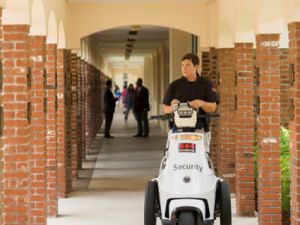 At a no-questions press conference in late December following the tragic shooting at Sandy Hook Elementary School in Newtown, Connecticut, National Rifle Association executive vice president Wayne LaPierre announced a bold new multibillion-dollar proposal to end school shootings: Put an armed security guard or police officer in every school in the country. LaPierre commissioned a special task force to develop the plan, and deputized Asa Hutchinson, a former Republican congressman from Arkansas and director of the Drug Enforcement Agency under President George W. Bush, to head the effort.
At a no-questions press conference in late December following the tragic shooting at Sandy Hook Elementary School in Newtown, Connecticut, National Rifle Association executive vice president Wayne LaPierre announced a bold new multibillion-dollar proposal to end school shootings: Put an armed security guard or police officer in every school in the country. LaPierre commissioned a special task force to develop the plan, and deputized Asa Hutchinson, a former Republican congressman from Arkansas and director of the Drug Enforcement Agency under President George W. Bush, to head the effort.Rescued by a Bailout, A.I.G. May Sue Its Savior
 Fresh from paying back a $182 billion bailout, the American International Group has been running a nationwide advertising campaign with the tagline “Thank you America.”
Fresh from paying back a $182 billion bailout, the American International Group has been running a nationwide advertising campaign with the tagline “Thank you America.”Behind the scenes, the restored insurance company is weighing whether to tell the government agencies that rescued it during the financial crisis: thanks, but you cheated our shareholders.
The board of A.I.G. will meet on Wednesday to consider joining a $25 billion shareholder lawsuit against the government, court records show. The lawsuit does not argue that government help was not needed. It contends that the onerous nature of the rescue — the taking of what became a 92 percent stake in the company, the deal’s high interest rates and the funneling of billions to the insurer’s Wall Street clients — deprived shareholders of tens of billions of dollars and violated the Fifth Amendment, which prohibits the taking of private property for “public use, without just compensation.”
Shale Gas: How Hard on the Landscape?
 The shale gas industry claims that it is doing everything it can to minimize its impact on forests and farms, but therein lies the resource's second major myth.
The shale gas industry claims that it is doing everything it can to minimize its impact on forests and farms, but therein lies the resource's second major myth.Industry lobbyists such as Canadian Association of Petroleum Producers (CAPP), for example, claim that a natural gas well site is about the size of two car garage and that "the use of multi-well drilling pads have greatly reduced the area of land disturbed in drilling operations."
Imported Workers Fight Back
The convenience of the serene new Canada Line SkyTrain in Vancouver transporting cheerful strangers from the airport to downtown painted a pretty picture of Canada as a host of the 2010 Winter Olympics. But the celebration of multiculturalism came at a hefty price: approximately $3.57 per hour.
That was how much two international engineering corporations initially paid the Latin American workers hired to build the Canada Line, according to testimony by some of the labourers who said they received a net average salary of $1,000 USD for their first two months, on 60 to 70-hour work weeks. Crane operator Franklin Mora, from Costa Rica, got paid $1,280 a month for April and May, which amounted to $3.89 per hour.
That was how much two international engineering corporations initially paid the Latin American workers hired to build the Canada Line, according to testimony by some of the labourers who said they received a net average salary of $1,000 USD for their first two months, on 60 to 70-hour work weeks. Crane operator Franklin Mora, from Costa Rica, got paid $1,280 a month for April and May, which amounted to $3.89 per hour.
Rob Ford appeal hearing presents two visions of the mayor: honest man — or stubborn lawbreaker?
 Mayor Rob Ford was portrayed in court Monday as both a stubborn lawbreaker who “knows nothing” and an honest and principled do-gooder whose mistake was understandable, if it was a mistake at all.
Mayor Rob Ford was portrayed in court Monday as both a stubborn lawbreaker who “knows nothing” and an honest and principled do-gooder whose mistake was understandable, if it was a mistake at all.Whether Ford keeps or loses his job could depend on how charitably a three-judge Divisional Court appeal panel views the council vote over which another judge kicked him out of office in November. His fate could also rest on whether the judges believe the council debate should have occurred in the first place.
Scathing federal government audit dismissed by Attawapiskat Chief Theresa Spence as ‘distraction’
 OTTAWA — In her 28th day of a hunger strike, Chief Theresa Spence shrugged off as a “distraction” a scathing federal audit that shows the Attawapiskat band council failed to keep basic records for how it spent more than $100 million in federal funds.
OTTAWA — In her 28th day of a hunger strike, Chief Theresa Spence shrugged off as a “distraction” a scathing federal audit that shows the Attawapiskat band council failed to keep basic records for how it spent more than $100 million in federal funds.The accounting firm of Deloitte and Touche found “no evidence of due diligence in the use of public funds, including the use of funds for housing” in its review of Attawapiskat’s books for a six-and-a-half-year period.
Broward Transitional Center: Immigrants With No Criminal History Get Lengthy Stays At Little-Known Jail
 DEERFIELD BEACH -- Hundreds of men and women who have committed minor offenses, such as driving without a license, or no apparent crime at all, are locked up for weeks and months in a little-known central Broward County facility run by a private company.
DEERFIELD BEACH -- Hundreds of men and women who have committed minor offenses, such as driving without a license, or no apparent crime at all, are locked up for weeks and months in a little-known central Broward County facility run by a private company.They are immigrants, accused of entering the country without legal authorization or staying longer than permitted.
Banks' Charity, Philanthropic Giving Only Reaches 'Mediocre' Levels
 The philanthropic practices of the United States' four megabanks are "mediocre" at best, an independent watchdog has concluded.
The philanthropic practices of the United States' four megabanks are "mediocre" at best, an independent watchdog has concluded.A report released Thursday by the National Committee for Responsive Philanthropy (NCRP), the only independent watchdog of institutional philanthropy, found that Wells Fargo, Bank of America, JPMorgan Chase and Goldman Sachs have tried to use charity as a way to boost their tarnished images, but those banks lack transparency and donate at disappointing levels.
Immigration Enforcement Cost Higher Than FBI, Policing Drugs, Guns Combined: Report
WASHINGTON -- The United States spends more money on immigration enforcement -- nearly $18 billion in the 2012 fiscal year -- than on its other law enforcement agencies combined, according to a report released Monday from the nonpartisan Migration Policy Institute.
That spending went to U.S. Immigration and Customs Enforcement, Customs and Border Protection and US-Visit, a program that helps states and localities identify undocumented immigrants.
That spending went to U.S. Immigration and Customs Enforcement, Customs and Border Protection and US-Visit, a program that helps states and localities identify undocumented immigrants.
Exclusive: As Gitmo Turns 11, Al Jazeera’s Sami al-Hajj on 6-Year Ordeal of U.S. Detention, Torture
 On the 11th anniversary of Guantánamo Bay’s use as a prison for foreign
detainees, we air a Democracy Now! exclusive interview with Sami
al-Hajj, the only journalist held at Guantánamo. The Al Jazeera
cameraman was arrested in Pakistan in December of 2001 while traveling
to Afghanistan on a work assignment. Held for six years without charge,
al-Hajj was repeatedly tortured, hooded, attacked by dogs and hung from a
ceiling. Interrogators questioned him over 100 times about whether Al
Jazeera was a front for al-Qaeda. In January 2007, he began a hunger
strike that lasted 438 days until his release in May 2008. Now the head
of Al Jazeera’s human rights and public liberties desk, al-Hajj sits
down for a rare interview with Democracy Now! host Amy Goodman in Doha,
Qatar
On the 11th anniversary of Guantánamo Bay’s use as a prison for foreign
detainees, we air a Democracy Now! exclusive interview with Sami
al-Hajj, the only journalist held at Guantánamo. The Al Jazeera
cameraman was arrested in Pakistan in December of 2001 while traveling
to Afghanistan on a work assignment. Held for six years without charge,
al-Hajj was repeatedly tortured, hooded, attacked by dogs and hung from a
ceiling. Interrogators questioned him over 100 times about whether Al
Jazeera was a front for al-Qaeda. In January 2007, he began a hunger
strike that lasted 438 days until his release in May 2008. Now the head
of Al Jazeera’s human rights and public liberties desk, al-Hajj sits
down for a rare interview with Democracy Now! host Amy Goodman in Doha,
QatarVideo
Source: Democracy Now!
Author: --
Bureaucrats forced into last-minute pitch to save some refugee health benefits
OTTAWA - Civil servants in the Department of Citizenship and Immigration had to scramble to make the case for preserving some refugee health-care benefits destined for the government's cost-cutting axe, newly released documents show.
And they were forced into a last-minute pitch to Immigration Minister Jason Kenney to save part of the interim federal health program, despite having argued some eight months earlier that the proposed policy was flawed.
And they were forced into a last-minute pitch to Immigration Minister Jason Kenney to save part of the interim federal health program, despite having argued some eight months earlier that the proposed policy was flawed.
Justin Trudeau, Palestine and the politics of right-wing smear campaigns
 Much was made last month about Justin Trudeau's keynote appearance at one of North America's largest Muslim conferences. The conference has been accused mostly by sectors of the Canadian right-wing of being an "Islamist" venture.
Much was made last month about Justin Trudeau's keynote appearance at one of North America's largest Muslim conferences. The conference has been accused mostly by sectors of the Canadian right-wing of being an "Islamist" venture.The Toronto-based Reviving the Islamic Spirit (RIS) conference ended up accepting the withdrawal of one of its major sponsors, the International Relief Fund for the Afflicted and Needy Canada (IRFAN Canada), because the Canadian Revenue Agency concluded last April that the Mississauga-based organization funded "Hamas-linked" groups. IRFAN then had its charitable status stripped. The CRA's allegations and conclusions are being challenged in court.
Native bands challenge omnibus budget bill in court
Two native bands are attempting to challenge parts of the federal government's omnibus budget bill in court.
The bands are the Mikisew Cree and the Frog Lake First Nation, both from Alberta.
The chiefs of both bands arrived in Ottawa Monday to present their application to the Federal Court on Tuesday.
The bands are the Mikisew Cree and the Frog Lake First Nation, both from Alberta.
The chiefs of both bands arrived in Ottawa Monday to present their application to the Federal Court on Tuesday.
Fowler blasts Tories for saying Canada has not been asked to send troops to Mali
 OTTAWA - Robert Fowler, the retired Canadian diplomat who was kidnapped by terrorists in Africa, blasted the Harper government Monday for saying it has not been asked to contribute to the international military mission to Mali.
OTTAWA - Robert Fowler, the retired Canadian diplomat who was kidnapped by terrorists in Africa, blasted the Harper government Monday for saying it has not been asked to contribute to the international military mission to Mali.Fowler condemned the government for advancing that position on the eve of a meeting between Prime Minister Stephen and the head of the African Union in Ottawa, where a request for a Canadian troop contribution was widely expected.
Subscribe to:
Comments (Atom)

